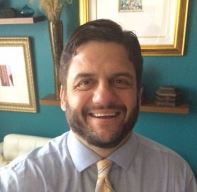Rare Disease Day 2017
Today’s post was written by Bert E. Thomas IV, PhD, MBA, CEO of the Sarcoma Foundation of America.

Two years ago, I wrote a blog post in honor of Rare Disease Day. Entitled, “Shedding Light on the Forgotten Cancer,” it was a piece meant to raise awareness for a little known disease on a day designed to bring attention to a community of patients that are so often overlooked.
It seems appropriate to share that post again as we are near Rare Disease Day 2017. On the last day of February, the rare disease community will collectively join voices and tell the world about the needs of those battling diseases – like sarcoma – that desperately need more research, more therapies, and more awareness. We know that the work that we do on behalf of sarcoma patients is a priority each and every day of the year, but we hope that the extra attention that comes along with Rare Disease Day inspires more people to become sarcoma advocates and help in our efforts to educate the public about the needs of this community.
As someone connected to the sarcoma community, we hope that you will join with us to stand up, be counted, and make your voice heard. In honor of Rare Disease Day, share your story with anyone willing to listen or share the post below as a way of spreading sarcoma awareness. No matter how you choose to honor Rare Disease Day, please help us in our effort to “shed light” on this forgotten cancer.
Shedding Light on the Forgotten Cancer
What is sarcoma? Unfortunately, if your life has not been touched by the disease you probably have no idea what sarcoma is.
Sarcoma is a rare cancer in adults (1% of all adult cancers), but rather prevalent in children (about 15% of all childhood cancers). It is made up of many “subtypes” because it can arise from a variety of tissue structures (nerves, muscles, joints, bone, fat, blood vessels – collectively referred to as the body’s “connective tissues”). The most frequent location is in the limbs since this is where the majority of the body’s connective tissue resides. They are commonly hidden deep in the body, so sarcoma is often difficult to diagnose. This can result in larger, more advanced tumors at diagnosis.
This can make the moment that a sarcoma patient receives the bad news even scarier. “So doctor, you are telling me I have cancer – a cancer I have never heard of – and the tumor is advanced?” These patients are more than scared–they are petrified. I don’t know how these patients make it past that doctor visit. They are truly sarcoma warriors! At this point the battle has just begun.Their family and friends are just as much in the dark about the disease as they are. The Sarcoma Foundation of America is here to help by funding innovative sarcoma research, educating patients about their disease and raising public awareness of the disease, but sarcoma patients need more help. They need the help of the entire biomedical ecosystem and the general public and they need it now.
Sarcoma has been called “the forgotten cancer” because awareness is so low, unlike other cancers (like breast, lung, and colon) where awareness is so high. It gets lost in the background noise of the overall cancer community. The percentage of National Cancer Institute funding dedicated to sarcoma research is lower than its prevalence. Organizations that advocate for sarcoma patients, like the Sarcoma Foundation of America, are small. Pharmaceutical companies are testing new experimental agents in sarcoma, but the pace of new therapy development cannot keep up with the extraordinary needs of these patients. (Note: We have seen substantial progress since this post was first written in 2015. In the two years that have passed, three new drugs have been approved for the use in the treatment of certain soft tissue sarcomas.)
So how do we help sarcoma patients? How do we raise public awareness of the disease? We must put down our soapbox any place that we can and we start talking. We need more advocates! We need more volunteers! We need more resources to fund sarcoma research and patient-focused initiatives! We need the general public to take up the cause, like they have for bigger cancers and like they have with other rare diseases. We need everyone’s help to turn this “forgotten cancer” into a thing of the past.

